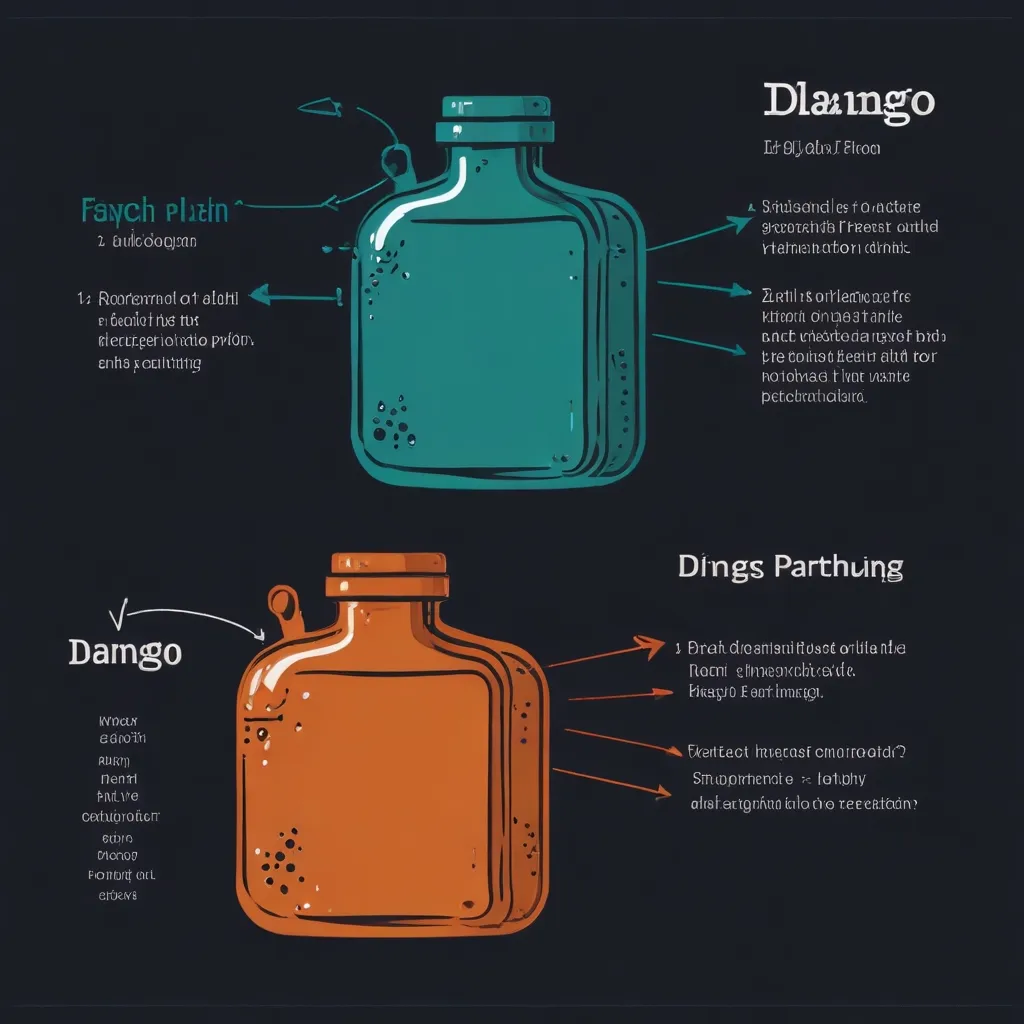Python’s memory management is crucial for building efficient applications. Let’s explore five powerful libraries that can help optimize memory usage in your Python projects.
Memory Profiler The memory_profiler library offers precise insights into your code’s memory consumption. It helps identify memory-intensive operations and potential leaks through line-by-line analysis.
from memory_profiler import profile
@profile
def memory_intensive_function():
large_list = [i for i in range(1000000)]
del large_list
if __name__ == '__main__':
memory_intensive_function()
The output shows memory usage per line, making it easy to spot problematic areas. You can also use it in Jupyter notebooks with the %memit magic command.
Psutil This cross-platform library provides comprehensive system monitoring capabilities. I frequently use it to track memory usage across different processes.
import psutil
def get_memory_info():
process = psutil.Process()
memory_info = process.memory_info()
print(f"RSS: {memory_info.rss / 1024 / 1024:.2f} MB")
print(f"VMS: {memory_info.vms / 1024 / 1024:.2f} MB")
system_memory = psutil.virtual_memory()
print(f"System Memory Usage: {system_memory.percent}%")
Objsize This library excels at analyzing individual Python objects’ memory footprint. It’s particularly useful when working with complex data structures.
import objsize
class DataContainer:
def __init__(self):
self.data = [1] * 1000000
container = DataContainer()
print(f"Object size: {objsize.get_deep_size(container)} bytes")
Pympler Pympler provides detailed memory analysis tools, including tracking references and identifying memory leaks. I find it invaluable for long-running applications.
from pympler import summary, muppy
def analyze_memory():
all_objects = muppy.get_objects()
sum1 = summary.summarize(all_objects)
summary.print_(sum1)
# Track specific objects
from pympler import tracker
tr = tracker.SummaryTracker()
tr.print_diff()
Guppy3 This comprehensive toolkit offers advanced memory profiling features. It’s particularly effective for heap analysis and object reference tracking.
from guppy import hpy
def analyze_heap():
h = hpy()
heap = h.heap()
print(heap)
# Detailed size breakdown
print(heap.byrcs)
Real-World Implementation Example: Here’s a practical example combining multiple libraries for comprehensive memory optimization:
import psutil
from memory_profiler import profile
from pympler import summary, muppy
import gc
class MemoryOptimizedApp:
def __init__(self):
self.process = psutil.Process()
@profile
def memory_intensive_task(self):
data = []
for i in range(1000000):
data.append(str(i))
return len(data)
def monitor_memory(self):
before = self.process.memory_info().rss
result = self.memory_intensive_task()
after = self.process.memory_info().rss
print(f"Memory Change: {(after-before)/1024/1024:.2f} MB")
# Analyze objects
all_objects = muppy.get_objects()
sum1 = summary.summarize(all_objects)
summary.print_(sum1)
# Force garbage collection
gc.collect()
return result
app = MemoryOptimizedApp()
app.monitor_memory()
Best Practices for Memory Optimization:
Use generators instead of lists when processing large datasets. They help manage memory by yielding values one at a time.
def memory_efficient_generator(n):
for i in range(n):
yield i
# Instead of
# large_list = [i for i in range(1000000)]
generator = memory_efficient_generator(1000000)
Implement context managers for resource management:
class ResourceManager:
def __enter__(self):
self.resource = [1] * 1000000
return self.resource
def __exit__(self, exc_type, exc_val, exc_tb):
del self.resource
gc.collect()
with ResourceManager() as resource:
# Work with resource
pass # Resource automatically cleaned up
Use slots for classes with fixed attributes:
class OptimizedClass:
__slots__ = ['name', 'value']
def __init__(self, name, value):
self.name = name
self.value = value
Memory monitoring in production environments requires careful consideration. Here’s a robust monitoring system:
import logging
from functools import wraps
import time
logging.basicConfig(level=logging.INFO)
logger = logging.getLogger(__name__)
def memory_monitor(func):
@wraps(func)
def wrapper(*args, **kwargs):
process = psutil.Process()
start_mem = process.memory_info().rss
start_time = time.time()
result = func(*args, **kwargs)
end_mem = process.memory_info().rss
end_time = time.time()
logger.info(f"""
Function: {func.__name__}
Memory Change: {(end_mem-start_mem)/1024/1024:.2f} MB
Execution Time: {end_time-start_time:.2f} seconds
""")
return result
return wrapper
@memory_monitor
def your_function():
# Your code here
pass
These libraries and techniques form a comprehensive toolkit for memory optimization in Python applications. Regular monitoring and optimization are essential for maintaining efficient and scalable applications.
Remember to profile your application under various conditions and implement optimizations based on actual usage patterns. Memory optimization is an ongoing process that requires regular attention and updates as your application evolves.






